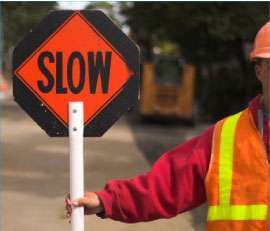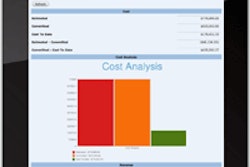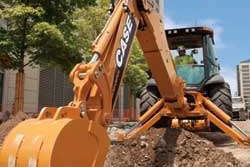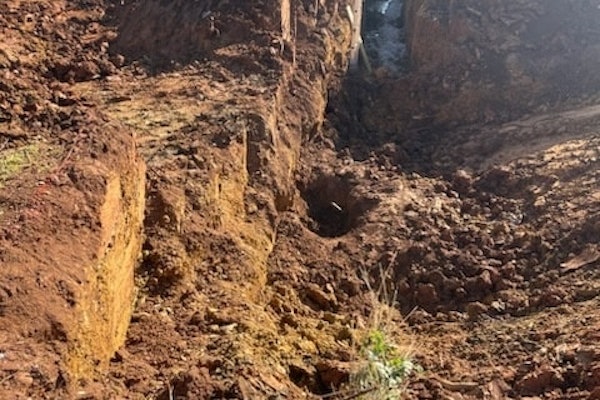Transportation Bill Could Stall Until 2013
By Audrey Dutton

That could mean a diminished long-term flow of transportation bonds backed by federal grants for the municipal market and a greater short-term flow as states react cautiously to the prospect of a more unpredictable environment for highway funding.
“My fear, but also my best guess, is that the administration and Congress will continue to pay for [transportation until 2013] the way they’re doing it now,” said James H. Burnley 4th, legislative and government affairs partner at Venable LLP and former U.S. transportation secretary, from 1987 to 1989.
“After the 2012 congressional and presidential elections, it’s a new day,” he said, and anyone who tries to speculate on what those lawmakers would create for a multiyear bill “is on a fool’s errand.”
Congress has already approved a 15-month delay in legislation to revamp the national transportation system and provide enough money to execute the plans. The last multiyear transportation law expired Sept. 30, 2009, and lawmakers opted to keep programs afloat through extensions.
“Politicians are going to be under a lot of pressure before 2013 to start taking action to put our fiscal house in order. A good, strong infrastructure bill can be very helpful in bringing about economic growth. … That could change the picture between now and 2013.”
Jack Schenendorf
Only one bill, by House Transportation Committee chairman James L. Oberstar, D-Minn., has been put forward. This is an encore of the 2005 reauthorization, which Congress took two years to approve.
But this time around, Congress is expected to do more than simply reauthorize federally-funded, state-run transportation programs. It is expected to confront the reality of funding shortfalls, caused partly by declines in the fuel tax revenues that are funneled to states by the federal government.
Industry sources speculate that Congress’ best option to pay for the next highway bill is to raise the existing fuel taxes. But that is a political non-starter in this election year, sources said.
So the highway bill could be pushed into 2011, at which point fiscal conservatives may control Congress, and President Obama may still be opposed to raising any tax. That combination could block the most likely route to a fully-funded transportation overhaul until after the 2012 presidential election.
The best hope for a multiyear transportation bill is for Congress to take action early next year, according to sources.
The Senate and House would both need to approve legislation by Memorial Day next year, then work out any differences between their proposals during the summer.
“In terms of the legislative world, time’s a-wastin’,” said one transportation lobbyist, noting that four separate committees in the Senate and two in the House have jurisdiction over a multiyear bill. “The real question also will be, is the president engaged in the issue?” Signs from the administration indicate that he is not, the lobbyist said.
“I think everybody acknowledges things are going to change in November,” and that key House and Senate committees could have new chairmen, noted one industry expert. “The scenario for the next year or two sure looks like a series of extensions.”
If the next Congress fails to agree on a multiyear transportation bill, that could push the issue into 2013, when there is the potential not only for new members of Congress but also for a new presidential administration.
“By 2013, we’re going to be in a very different world,” a lobbyist said. “All bets are off.”
But there are other, more optimistic, schools of thought on the potential for a massive highway bill before 2013.
The anti-tax, anti-deficit atmosphere could be overpowered by a desire to revive the economy, accelerating the push for a large-scale infrastructure bill, according to Jack Schenendorf, counsel at Covington & Burling LLP and vice chairman of a federal commission that was tasked with finding solutions to the transportation funding problem.
“Politicians are going to be under a lot of pressure before 2013 to start taking action to put our fiscal house in order,” he said. “A good, strong infrastructure bill can be very helpful in bringing about economic growth. … That could change the picture between now and 2013.”
But while Congress dithers on transportation, states will continue needing to draw cash from the Highway Trust Fund. The current infusion of Treasury funds to supplement fuel taxes is expected to last through next fall.
When those funds run out, Congress could initiate another general-fund transfer to keep the account solvent until a new authorization can be approved.
That presents another potential problem. Sources said that repeated Treasury transfers have eroded the justification for a “firewall” that protects Highway Trust Fund dollars from going into a pot with other funds that are subject to annual appropriations.
One lobbyist worried that “there’s a very real possibility that the trust fund disappears,” if Congress fails to approve a new transportation bill before the current Treasury fund infusion is exhausted.
“Concrete doesn’t compete well against kids and sick people,” said Pete Rahn, senior vice president at HNTB and former director of the Missouri Department of Transportation, referring to the possibility of transportation being up against health care and education appropriations each year.
The firewall allows states to plan years ahead for projects and issuance of grant anticipation revenue vehicles secured by federal grants.
If the trust fund firewall disappeared and highway grants were decided year-by-year, states could still make their Garvee payments, Rahn said.
“Whether the states would continue to issue debt based on the federal program could go either way. States could either stop issuing Garvee bonds,” Rahn said. Or they could issue more of them to “bridge their programs” until 2013, when highway funds could stabilize.v

As President Ronald Reagan Said … and Did
Editor’s Note: Reauthorization of a surface transportation bill remains stalled while politicians refuse to consider the necessity of raising fuel taxes. So it is worth recalling what President Ronald Reagan, originally an opponent of a higher gas tax, said in a radio Address to the Nation on proposed legislation for a highway and bridge repair program on November 27, 1982. It fits today’s situation like a glove.
“One of our great material blessings is the outstanding network of roads and highways that spreads across this vast continent. Freedom of travel and the romance of the road are vital parts of our heritage, and they helped to make America great. Four million miles of streets and roads make it possible for the average citizen to drive to virtually every corner of our country – to enjoy America in all its beauty and variety. They also form a vital commercial artery unequaled anywhere else in the world.
“Our interstate system has reduced by nearly a day and a half the time it takes to drive coast to coast. And more efficient roads mean lower transportation costs for the many products and goods that make our abundant way of life possible. But let’s face it: Lately, driving isn’t as much fun as it used to be. Time and wear have taken their toll on America’s roads and highways. In some places the bad condition of the pavement does more to control speed than the speed limits.
“We simply cannot allow this magnificent system to deteriorate beyond repair. The time has come to preserve what past Americans spent so much time and effort to create, and that means a nationwide conservation effort in the best sense of the word. America can’t afford throwaway roads or disposable transit systems. The bridges and highways we fail to repair today will have to be rebuilt tomorrow at many times the cost.
“So I’m asking the Congress when it reconvenes next week to approve a new highway program that will enable us to complete construction of the interstate system and at the same time get on with the job of renovating existing highways. The program will not increase the federal deficit or add to the taxes that you and I pay on April 15th. It’ll be paid for by those of us who use the system, and it will cost the average car owner only about $30 a year. That’s less than the cost of a couple of shock absorbers. Most important of all, it’ll cost far less to act now than it would to delay until further damage is done. And I should point out, delay is also dangerous as well as costly …
“Common sense tells us that it’ll cost a lot less to keep the system we have in good repair than to let it crumble and then have to start all over again. Good tax policy decrees that wherever possible a fee for a service should be assessed against those who directly benefit from that service. Our highways were built largely with such a user fee – the gasoline tax. I think it makes sense to follow that principle in restoring them to the condition we all want them to be in.
“So, what we’re proposing is to add the equivalent of 5 cents per gallon to the existing federal highway user fee, the gas tax. That hasn’t been increased for the last 23 years. The cost to the average motorist will be small, but the benefit to our transportation system will be immense. The program will also stimulate 170,000 jobs, not in make-work projects but in real, worthwhile work in the hard-hit construction industries, and an additional 150,000 jobs in related industries. It will improve safety on our highways and will make truck transportation more efficient and productive for years to come.
“Perhaps most important, we will be preserving for future generations of Americans a highway system that has long been the envy of the world and that has truly made the average American driver king of the road.”












